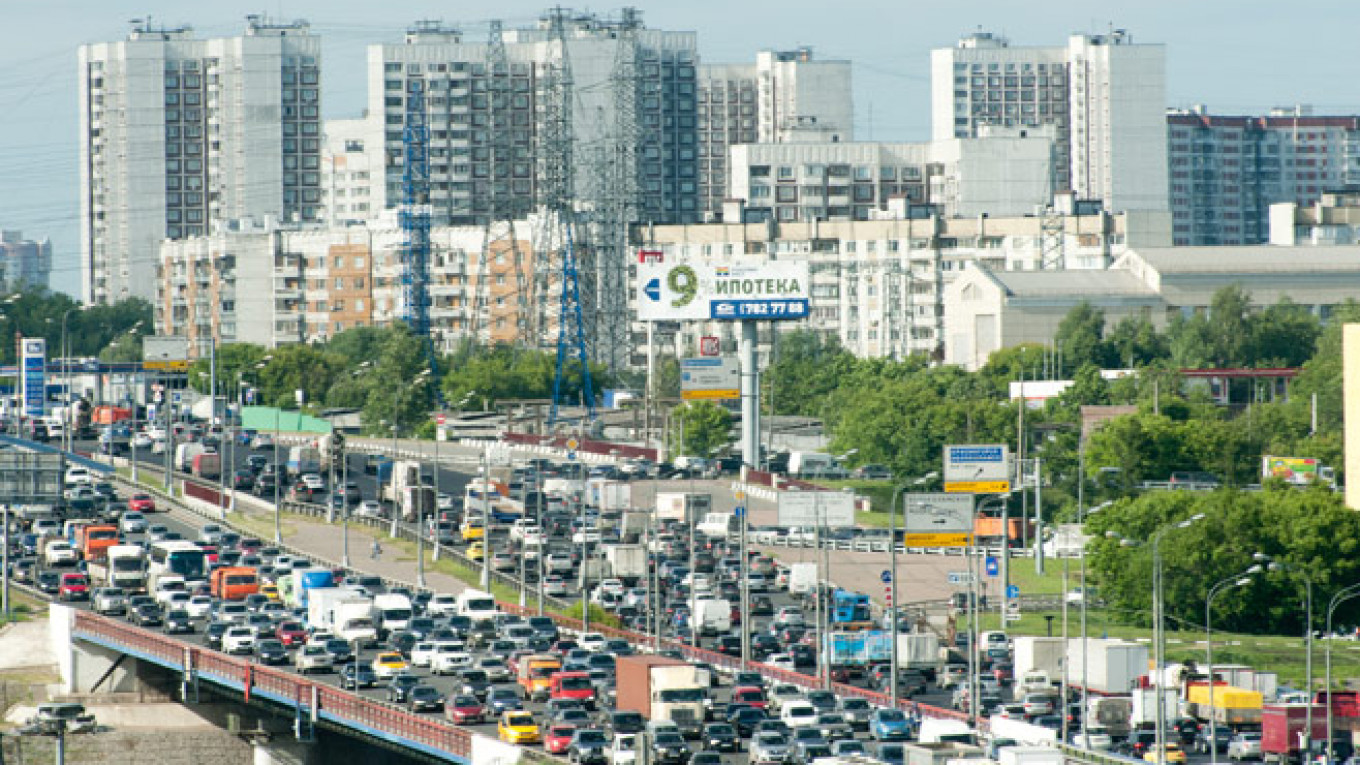The Russian car market's collapse downshifted to a 29.7 percent drop year-on-year in June, largely thanks to a government program that has made car loans more affordable, a report issued Wednesday said.
A total of 140,161 new cars were sold in Russia in June, down from 199,398 cars sold during the same period last year, according to the report by the Association of European Businesses (AEB), a Moscow-based business lobby group.
While this was still a steep fall, the drop paled in comparison to previous months: car sales dropped 37.6 percent in May, 41 percent in April and 42.5 percent in March year-on-year, the AEB said.
The marginal recovery came largely thanks to government policies that have made car loans more affordable, according to the AEB.
Lending rates have fallen as, encouraged by the slowing pace of inflation, Russia's Central Bank has gradually lowered its key interest rate to 11.5 percent after hiking it to 17.5 percent last year in an effort to stem the ruble's collapse. The government has meanwhile moved to support the car market, launching a program in April that subsidizes loans for cars priced at less than 1 million rubles ($17,500).
Affordable credit has been a key driver of car sales in the past: 40.1 percent of the new cars purchased last year were bought with borrowed money, car market research agency Autostat said in May.
Nonetheless, Russia is still in for a rocky ride this year, said Joerg Schreiber, chairman of the AEB's Automobile Manufacturers Committee.
"[This is] no reason to relax whatsoever. … Market sentiment for the remaining six months of the year remains muted," Schreiber was quoted as saying in an AEB press release.
According to a poll of AEB members, Russia's car market will shrink 36 percent this year to a total of 1.55 million cars sold.
Russia's car market has struggled to adapt to the devaluation of the ruble, which has fallen around 40 percent to the U.S. dollar since the start of last year. Even Russian car companies rely heavily on imported parts, the cost of which has soared with the ruble's fall.
Contact the author at s.skove@imedia.ru
A Message from The Moscow Times:
Dear readers,
We are facing unprecedented challenges. Russia's Prosecutor General's Office has designated The Moscow Times as an "undesirable" organization, criminalizing our work and putting our staff at risk of prosecution. This follows our earlier unjust labeling as a "foreign agent."
These actions are direct attempts to silence independent journalism in Russia. The authorities claim our work "discredits the decisions of the Russian leadership." We see things differently: we strive to provide accurate, unbiased reporting on Russia.
We, the journalists of The Moscow Times, refuse to be silenced. But to continue our work, we need your help.
Your support, no matter how small, makes a world of difference. If you can, please support us monthly starting from just $2. It's quick to set up, and every contribution makes a significant impact.
By supporting The Moscow Times, you're defending open, independent journalism in the face of repression. Thank you for standing with us.
Remind me later.






